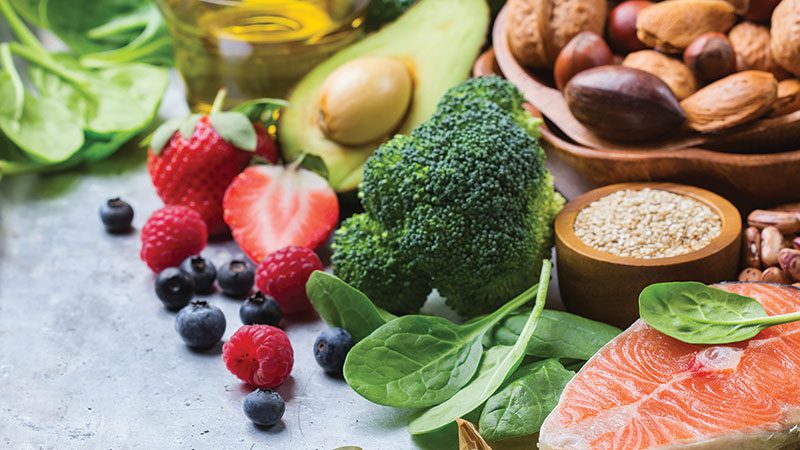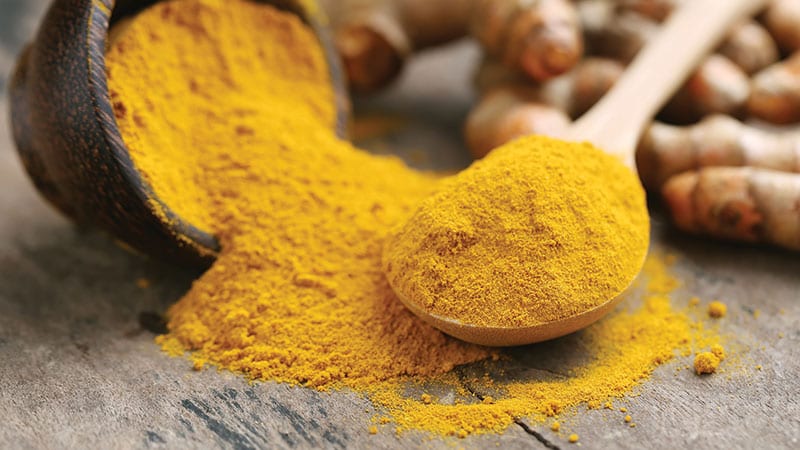Managing stress and inflammation

Looking for ways to live a less stressful life and reduce inflammation in your body in the new year? Consider the advice that two naturopathic physicians and Bastyr University faculty members gave PCC members at a recent meeting.
Dr. Claire Zimmerman, adjunct professor of naturopathic medicine, and Dr. Jenn Dazey, a faculty member in the Department of Botanical Medicine, suggested several changes to consider in homes, diets and overall life to promote lower inflammation, higher energy and better quality of life.
Their basic advice might sound familiar: Drink lots of water, eat nutritious food (organic if possible) and get enough fiber, eat colorful fruits and vegetables containing high levels of phytonutrients. Move your body, address uncontrolled weight or insulin, and try to sweat — whether through movement or another avenue like saunas.
In many other areas, though, they recommend considering more. And they know lifestyle changes are a big barrier that can overwhelm people and discourage them.
“If you’re struggling, don’t be hard on yourself, just get help. There are so many ways you can get yourself back on track…and really enjoy your life to its fullest,” Dazey said.
Zimmerman suggests focusing on just one or two changes at a time: “It’s like a drop in a bucket. If you start with one change that will start to build energy and motivation to do another change.”
Among their recommendations:
Control indoor air pollution
There are low-effort ways to make a big difference in indoor air quality, Zimmerman said, and “reducing dust in the home is a very high yield thing to do.” Consider:
- Sweep, dust, and wet-mop (using a damp cloth or mop) to reduce dust
- Remove shoes when you enter the home
- Minimize scented products like candles or air freshener sprays
- Bring in a HEPA air purifier (The Environmental Working Group (EWG) has a guide.)
For overall cleaning advice see more of Zimmerman’s recommendations here.
Reduce toxins
It’s not possible to do or control everything when it comes to environmental toxins. They suggest prioritizing:
- Work on water quality: A water filtration system is useful, and “at the end of the day any water filter is better than no water filter,” even if it’s as simple as a Brita-type carbon filter. Look up your zip code in this tap water database to get information on what type of filters might be useful based on your home’s water supply.
- Use less plastic. What we use every day to store and serve food makes a difference, especially when heating or cooling food. “Any plastics are not advisable for our health. Even if they say BPA-free it’s not good for us,” Zimmerman said.
- Realize light is a pollutant in our society: Our bodies are tuned to circadian rhythms through the sun and the moon, disrupting that rhythm can significantly affect bodily stress. Try to align with those natural cycles, including minimizing lights in the house when it is dark outside, putting blue light filters on electronic devices, and exposing yourself to natural light when you wake up – whether sitting by a window or, better yet, going for a walk or just drinking your morning coffee or tea outside.

Find helpful supplements and herbs
As far as supplements go in reducing inflammation, “I like it when I see lots of research done with humans that was positive, good evidence,” Dazey said. While different individuals have different needs depending on their health and conditions, she generally sees sound research supporting:
- Omega-3 fatty acids: Aiming for 800-1200 mg of EPA (a particular fatty acid) daily, taken with food. It takes at least 3 months to see the benefits, she said.
- If deficient in Vitamin D, taking 2000-4000 IU daily, or 15 minutes of sun on hands and feet.
- Minerals: Calcium citrate, potassium citrate, and others
- Herbs: Dazey notes they can be incorporated into foods, teas and in different parts of your lifestyle. Everyone talks about turmeric, and for good reason — it “inhibits a lot of those inflammatory cytokines at just about every level.” Recent research indicates taking it with Boswellia causes a synergistic effect. “Every week it seems there’s a new study coming out on rosemary.” Ginger is essential as well, especially for recovery from stress or injury.
Eat supportive foods
Red meat tops their list of inflammatory foods, with processed meats as #2. Sugar is another to avoid.
That doesn’t mean needing to eliminate inflammatory foods entirely, Dazey said. She recommends the “80-20” rule — eat supportive foods (or do other recommended practices) 80% of the time, getting most benefits in a manageable way.
- Wild-caught salmon, cabbage and other brassicas, shitake and maitake mushrooms, nuts and seeds, and colorful fruits and vegetables like blueberries are stars. “Eating the rainbow is one of the best things we can do for our health.”
- Add “supportive condiments” like kimchi, miso, apple cider vinegar and kombucha
- Supportive herbs, spices and teas include mint, basil, rosemary, chamomile, rose and green tea
Brassicas are especially good for fiber that supports the microbiome, Dazey noted, and “If your gut is healthy there really isn’t a huge need for extra supplementation.”
Think about adding things more than restricting. Simply adding supportive foods generally reduces cravings for sugary foods. That generous approach applies overall.
“I really think leaning into “How can I nourish myself…starts to really be a louder voice in our striving for health than other approaches might be.”
